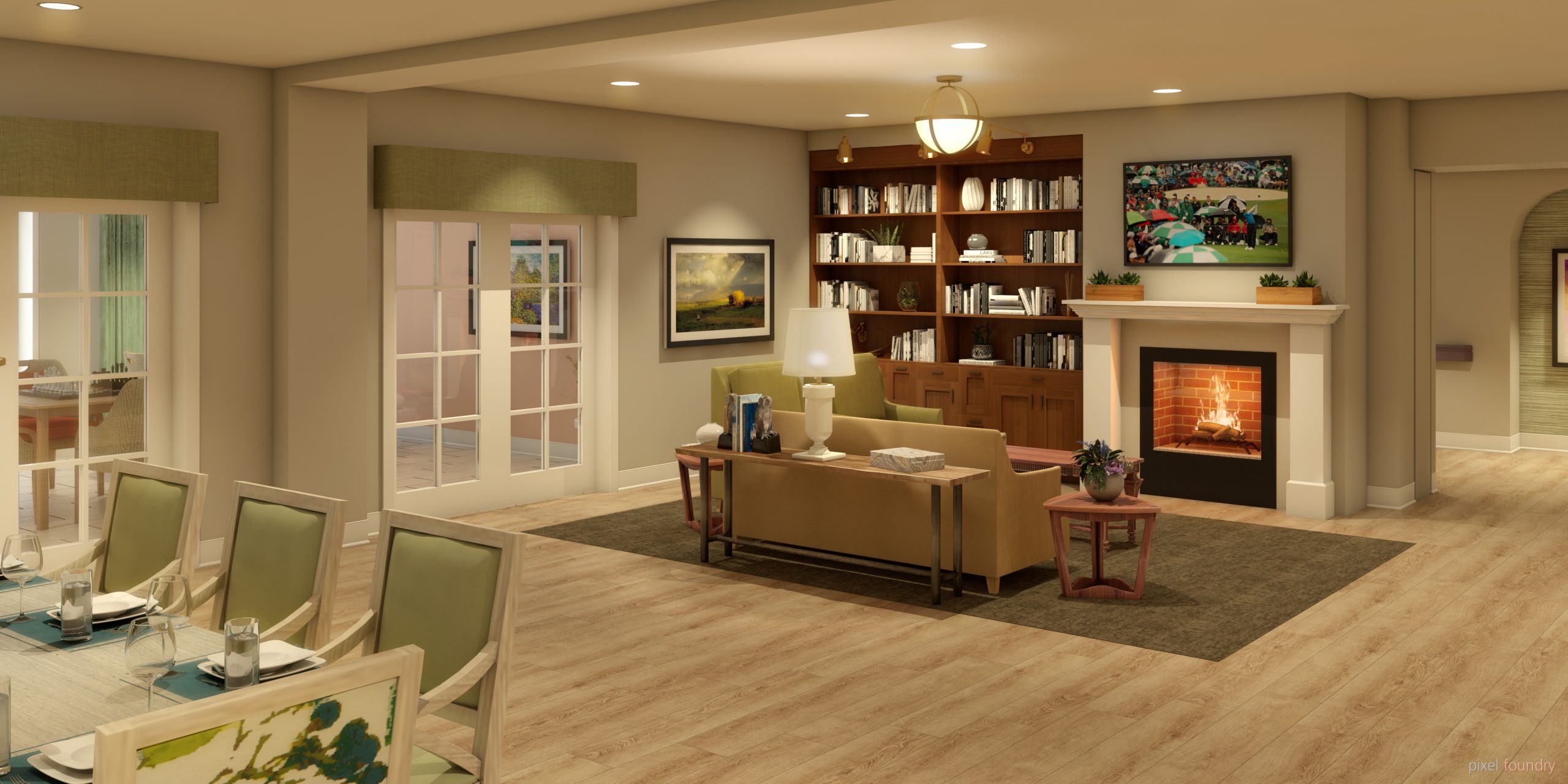Relied On Charlotte Memory Care: Specialist Assistance for Your Enjoyed Ones
Relied On Charlotte Memory Care: Specialist Assistance for Your Enjoyed Ones
Blog Article
Developing a Safe and Helpful Environment: In-Home Memory Care Basics
Establishing a caring and safe setting for people calling for at home memory treatment is critical to their well-being and lifestyle. From ensuring safety within the space to utilizing efficient communication methods and applying memory-friendly style elements, there are essential elements that add to an alternative treatment technique. By concentrating on creating a helpful ecological community that accommodates the special demands of those with memory problems, caretakers can significantly enhance the everyday experiences of their enjoyed ones.

Safe Living Atmosphere
Developing a safe and hazard-free living setting is vital when offering at home memory care for people with cognitive problems. Making sure the security of the specific with amnesia is vital to stop mishaps and advertise a feeling of well-being. One important aspect of producing a secure living setting is to get rid of any type of prospective hazards that can cause slips, trips, or drops. This includes protecting loosened carpets, ensuring sufficient illumination in all locations of the home, and maintaining paths clear of mess.
Furthermore, it is very important to mount safety and security features such as grab bars in restrooms and handrails along stairs to give assistance and avoid accidents. Additionally, utilizing innovation such as activity sensors and alarm systems can alert caregivers if the individual wanders or remains in distress. Producing a secure living atmosphere likewise includes carrying out approaches to avoid roaming, such as making use of door alarm systems or locks to limit accessibility to harmful locations. By focusing on safety and security steps and removing prospective threats, caretakers can provide a supportive and safe and secure environment for individuals with cognitive impairments receiving at home memory treatment.
Reliable Communication Strategies
Carrying out customized interaction approaches is important in cultivating meaningful communications with individuals with cognitive impairments in the context of in-home memory treatment. Effective communication plays a vital role in creating a supportive environment that boosts the health and quality of life for individuals with memory concerns. When interacting with someone experiencing cognitive decrease, it is very important to utilize simple and clear language, maintain a tranquility and positive tone, and offer visual cues to help comprehension.
One trick technique is to practice energetic listening, showing compassion, patience, and respect during conversations. Non-verbal signs such as faces and body movement can additionally assist communicate understanding and support. Additionally, making use of memory treatment by discussing previous experiences or making use of music and art can touch into lasting memories, stimulating and sparking connections involvement.
Furthermore, including normal routines and consistent interaction patterns can give a sense of familiarity and safety for people with memory impairments. By executing these communication approaches, caretakers can develop meaningful connections and advertise a feeling of comfort and trust fund in the at home memory treatment setup.
Memory-Friendly Style
Offered the relevance of developing an encouraging setting for individuals with memory concerns through reliable interaction techniques, the unification of memory-friendly layout components in the space ends up being imperative in optimizing their daily experiences and overall wellness. Memory-friendly design concentrates on boosting safety, convenience, and freedom for people with cognitive disabilities. Easy modifications can make a considerable distinction, such as using contrasting colors to improve presence and reduce confusion, including clear signage to help navigating, and decreasing mess to avoid sensory overload.
Incorporating familiar components from the individual's past, such as individual pictures or preferred things, can stimulate favorable memories and develop a sense of familiarity. Additionally, ensuring appropriate illumination levels, mounting grab bars in restrooms, and applying non-slip floor covering can assist avoid drops and injuries. Creating a relaxing and calming environment through the use of familiar aromas, soft structures, and peaceful noises can likewise promote leisure and reduce frustration. By incorporating these memory-friendly design aspects, caregivers can provide a encouraging and secure space that makes it possible for individuals with memory problems to maintain their self-reliance and high quality of life.
Daily Regimen Planning
When establishing an everyday regimen for individuals with memory issues, cautious preparation is important to support their cognitive function and overall wellness. Establishing an organized timetable can help in reducing disorientation, complication, and anxiousness commonly experienced by those with memory disabilities. Begin by including familiar tasks that line up with the person's choices and passions. Consistency in everyday regimens can give a feeling of security and stability, aiding in the preservation of cognitive capacities.
It is critical to enable adequate time for every activity, decreasing the demand to rush and avoiding possible aggravation. Straightforward jobs like meal times, personal treatment, medication management, and workout needs to be incorporated right into the regimen. Furthermore, incorporating normal periods of remainder and leisure can avoid exhaustion and agitation. Flexibility is key, as some days may require changes based upon the person's state of mind and energy degrees. Frequently assessing and adapting the daily routine will certainly aid guarantee its effectiveness in promoting a favorable and reassuring environment for individuals with memory challenges.
Support System Application
Developing a durable network of supportive individuals plays an essential duty in improving the top quality why not find out more of treatment and wellness for individuals needing memory assistance. Relative, good friends, health care professionals, and neighborhood resources can all add to developing a strong assistance system. Interaction among these people is necessary to guarantee that the requirements of the private with memory obstacles are fulfilled efficiently.
Relative are usually the primary caretakers and form the foundation of the support system. They give daily care, emotional support, and friendship. When needed to stop burnout and make certain the ideal possible care for their liked one., it is crucial for household participants to seek help and break.
Along with family members support, including healthcare specialists such as nurses, medical professionals, and specialists can supply specialized care and guidance. These specialists can offer useful insights, medical recommendations, and help in taking care of the person's problem.

Conclusion
To conclude, developing a safe and supportive environment for people with memory treatment needs is important for their well-being. By establishing a risk-free living environment, making use of efficient interaction strategies, including memory-friendly design elements, preparing everyday regimens, and implementing a strong support group, caregivers can help boost the quality of life for those with look here memory loss. These vital elements work with each other to develop a nurturing and empowering environment that promotes self-reliance and boosts general lifestyle.
Creating a secure and hazard-free living environment is extremely important when offering at home memory care for people with cognitive impairments. By focusing on safety actions and eliminating prospective hazards, caretakers can give a safe and encouraging environment for individuals with cognitive impairments getting at home memory care.
Developing a durable network of encouraging people plays a pivotal duty in boosting the top quality of care and health for people needing memory assistance - Charlotte Memory Care. Communication amongst these people is vital to ensure that the demands of the individual with memory challenges are met efficiently

Report this page